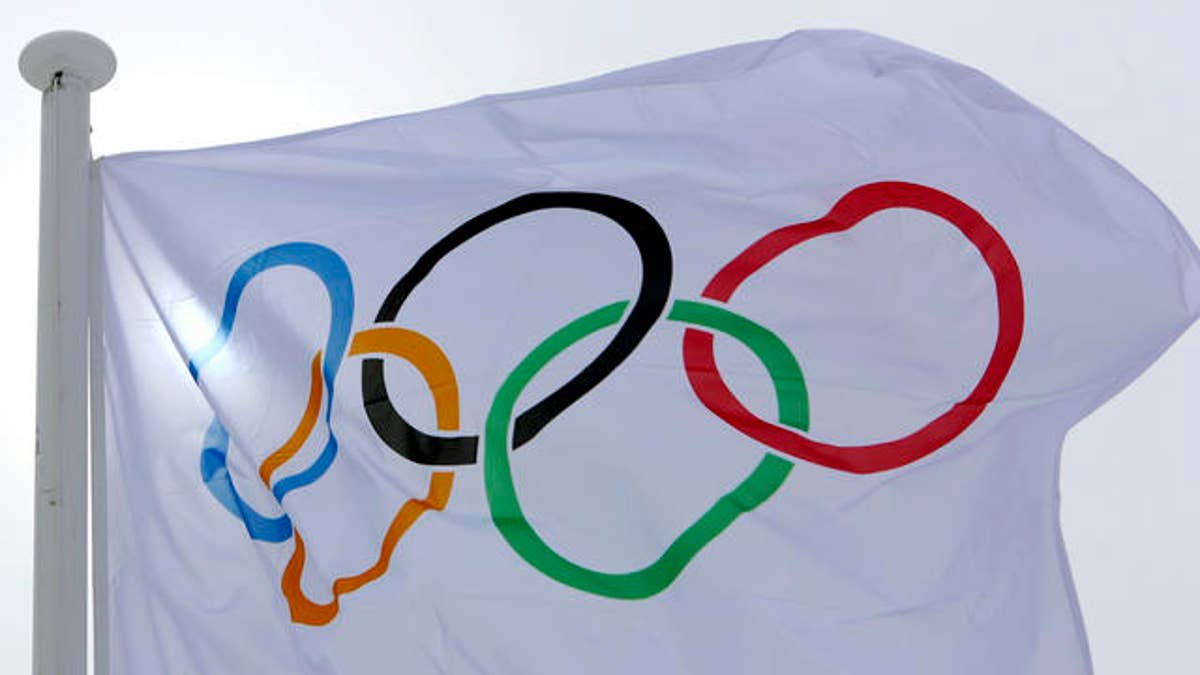
The Olympic flag flutters in the wind after the Nordic Combined team competition at the Turin 2006 Winter Olympic Games had to be cancelled due to the strong wind in Pragelato Plan, Italy, Wednesday, Feb 15, 2006. (AP Photo/Jens Meyer)
LONDON -- A British tabloid reported Tuesday that it had been handed documents about security arrangements for the London Olympics that were left on a train by a police officer, the latest in a series of embarassing mishaps involving British authorities misplacing government documents.
London police confirmed Tuesday that one of its officers lost a bag containing documents on Jan. 5 and reported it to his bosses, but downplayed the incident, adding that the papers were not "operationally sensitive."
"Obviously the loss of restricted material is a matter for concern, but we are satisfied that this does not compromise our security operation for the Olympics," police said in a statement.
The Sun newspaper says it received the documents from a passenger who found them on the train, and that it returned them to the police. It says the papers contain accounts of meetings where security measures were discussed, and details of contingency plans for the Olympics.
The Sun published an image of some of the documents in its print edition, and described in sweeping terms some of the complaints police had about communications systems.
Olympics experts deemed the breach embarrassing.
"It will do nothing but undermine confidence in the Olympics security operation, already brought into question by the prospect of riots and terrorist attacks," said Ellis Cashmore, a professor of culture, media and sport at Staffordshire University in England. "With so much scrutiny, it's almost beyond belief that someone in a responsible position would be guilty of such crass absentmindedness."
Security has been a top priority for the Olympics since 1972, when 11 Israeli athletes and coaches died in a terror attack at the games in Munich. The nature of nations squared off against nations also opens up the Olympics to an array of political issues.
The incident comes only a few weeks after London police experts managed to smuggle a fake bomb into Olympic Park in a security test. Olympic officials declined to comment directly on the matter, saying such "testing is standard practice" in all major security operations.
Security experts said that while such testing is routine, it underlined the constant and ongoing struggle faced by security forces to create a system that will safeguard the July 27-Aug. 12 event without making London feel like an armed camp.
Authorities have already acknowledged they vastly underestimated the number of people needed to search spectators and otherwise secure venues and other Olympic sites, and have substantially increased the number of military, police and security guards taking part in the games.
The document debacle was also another in a series of embarrassing mishaps involving sensitive information left on London's busy commuter network.
In January 2008, an unencrypted computer carrying information on 600,000 prospective military recruits was stolen from the car of a Royal Navy recruitment officer in central England. The month before, the government's top transport official said a disc containing personal information of 3 million driving-test candidates was lost. The Department of Health, meanwhile, lost information on 168,000 patients in a separate incident.
Dwarfing all those incidents was the revelation in November 2007 that British tax officials lost computer discs containing information -- including bank records -- for 25 million people, nearly half the country's inhabitants.
